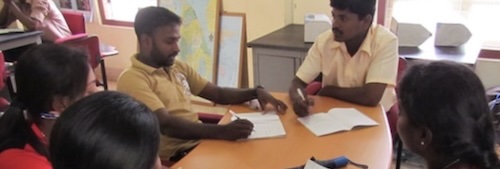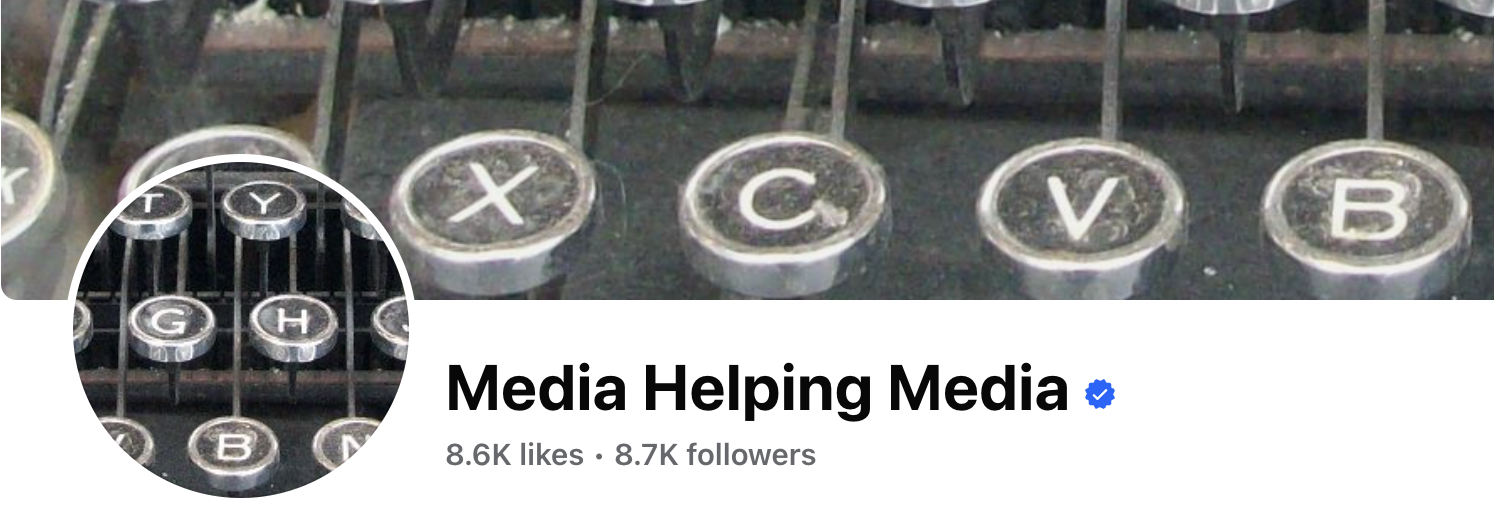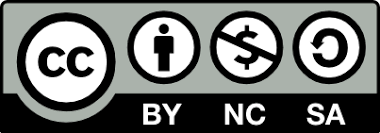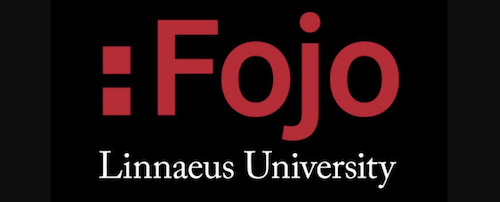 Find out how to make the best use of the training material on Media Helping Media.
Find out how to make the best use of the training material on Media Helping Media.
News sources and the ‘so what’ factor
Every news story needs at least one reliable source that is able to share information that helps the journalist get to the facts.
Constructing a news package for radio
This is a short training module setting out the basics for creating a news package for radio. It's been created for those starting out in radio journalism.
 Check our Facebook page for regular updates from Media Helping Media.
Check our Facebook page for regular updates from Media Helping Media.
 Media Helping Media provides free journalism and media management training resources.
Media Helping Media provides free journalism and media management training resources.
 The content on Media Helping Media (MHM) is released via Creative Commons BY NC SA 4.0.
The content on Media Helping Media (MHM) is released via Creative Commons BY NC SA 4.0.
 Media Helping Media is proud to be hosted by the Fojo Media Institute.
Media Helping Media is proud to be hosted by the Fojo Media Institute.
Handling breaking news
Journalists need to have a system in place for covering a breaking news story in order to know who does what and when.
Creating a current affairs programme
In this article we look at the steps involved in creating a news and current affairs programme based on the needs of the target audience.
The glossary of Information disorder
The following information disorder glossary is designed to help journalists understand the most common terms used.
Unconscious bias and journalism
Bias is a prejudice or favour for or against an individual or group. It is often an inaccurate and unfair judgement. We are all biased. It’s normal, although it is not desirable.
Why editorial ethics are important
The Media Helping Media ethics section is designed to help journalists navigate some of the challenges they might face as they go about their work.
Impartiality in journalism
For journalists, being impartial means presenting information without demonstrating favouritism towards any specific viewpoint or party.
Tool: The Content Value Matrix
In this article we look at the 'content value matrix, a tool designed to help media managers prioritise effort and resources on the stories that really matter to the target audience.
Social media in news production
Social media has fundamentally disrupted the media landscape, forcing traditional outlets to confront their operational models and redefine their role in a rapidly evolving information ecosystem.
Convergence: workflows, roles and responsibilities
A converged newsroom operates like a 'content factory', with a centralised 'command and control' desk responsible for all news intake, production and output.
Newspaper audience research
Audience research is essential if a newspaper is to remain relevant and generate revenue, but some publishers fail to gather adequate audience feedback.
Creating a current affairs programme
In this article we look at the steps involved in creating a news and current affairs programme based on the needs of the target audience.
From digital denial to digital first
Failure to recognise and keep up with changing audience behaviour is one of the most common reasons for media organisations struggling.
Accuracy – scenario
In this scenario a reporter witnesses a mass walkout of workers from a factory affected by industrial action. The company claims it's business as usual; the union says all workers have downed tools.
Off-the-record chat – scenario
In this scenario we look at what a journalist should do with off-the-record information when it relates to a major news event.
Withholding information – scenario
In this scenario a journalist comes across information that changes the focus of a story the editor had asked them to write. Should they include it or withhold it.
Evaluating the impact of training
The evaluation process at the end of a media training session begins the moment you are engaged by the media organisation you are being asked to help because this is when you know the expectations and deliverables.
International media training
Those invited to help the media overseas need to ensure that the training they offer is continually refreshed in order to stay relevant and useful.
Evaluation, impact, and assessment
Training should always be judged by its effectiveness, and there are several tools for measuring success.